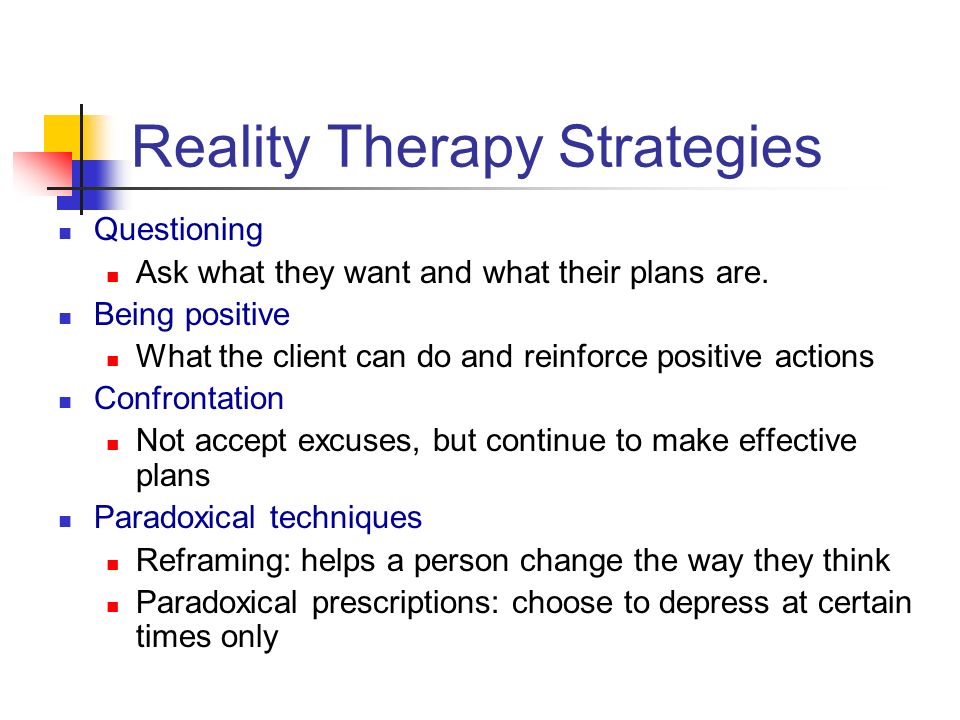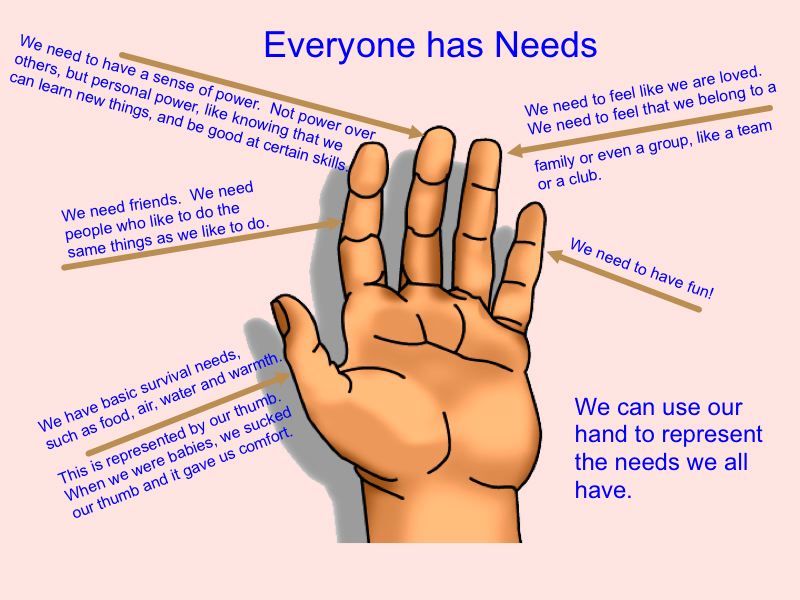Reality Therapy is a form of psychotherapy that helps people to identify and change maladaptive behaviors. It was developed by Dr. William Glasser in the 1960s and has been growing in popularity ever since. In this article, we will explore what Reality Therapy is, how it works, who can benefit from it, and some of the pros and cons associated with it.
Contents
Understanding Reality Therapy
Reality Therapy is based on the idea that we are all responsible for our own lives and happiness. This means that we need to take control of our thoughts, feelings, and actions to create the life we want.
Reality Therapy focuses on the here-and-now rather than on past events or future goals. This is because the present is the only thing we can control.
Tenets of Reality Therapy
There are three main tenets of this therapy:
- Individual responsibility: We are all responsible for our own lives and happiness. This means that we need to take control of our thoughts, feelings, and actions to create the life we want.
- Focus on the present: Reality Therapy focuses on the here-and-now rather than on past events or future goals. This is because the present is the only thing we can control.
- Change is possible: We all can change our thoughts, feelings, and behaviors. Change is not always easy, but it is always possible.
Theory Behind Reality Therapy

Reality Therapy is based on the idea of Choice Theory. Choice Theory is the belief that we are all motivated by our own needs and wants. When we satisfy our needs, we feel happy and fulfilled. When our needs are not met, we feel unhappy and unfulfilled. Therefore, to be happy, we need to take control of our own lives and satisfy our own needs.
History and Development
Reality Therapy was developed by Dr. William Glasser in the 1960s. It is based on his theory of Choice Theory. It states that we are all responsible for our thoughts, feelings, and actions. This therapy has been growing in popularity ever since it was first developed.
Unfolding Reality Therapy
Reality Therapy is typically conducted in a one-on-one setting. However, it can also be done in a group setting. The therapist will help the client to identify their goals and develop a plan to achieve them. The therapist will also provide support and guidance along the way.
Who Can It Help
This therapy can be used to help people with a range of issues. Including addiction, eating disorders, relationship problems, and more. It can also be used to help people who are struggling with making major life changes.
How Does It Work
Reality Therapy focuses on the here-and-now rather than on past events or future goals. This is because the present is the only thing we can control.
The therapist will help the client to identify their goals and develop a plan to achieve them. The therapist will also provide support and guidance along the way.
Techniques Used In Reality Therapy

Several techniques are used in this therapy. However, these include:
- Goal setting: The therapist will help the client to identify their goals and develop a plan to achieve them.
- Action planning: The therapist will help the client to develop a plan of action that will help them to achieve their goals.
- Support and guidance: The therapist will provide support and guidance to the client throughout the process.
Evaluating Reality Therapy

Reality Therapy is effective in several studies. In one study, it was found to be effective in treating substance abuse. In another study, it was found to be effective in treating eating disorders.
Benefits of Reality Therapy
This therapy has several benefits, including:
- Helping people to take control of their lives
- Teaching people how to satisfy their own needs
- Encouraging change in thoughts, feelings, and behaviors
Limitations of Reality Therapy
There are a few limitations to this therapy, including:
- It can be difficult to change longstanding habits
- The therapist might not have a good understanding of Choice Theory
- People may not be able to identify their goals or develop a plan to achieve them
Why Consider It
If you are looking for a therapy that focuses on the present rather than the past, Reality Therapy may be a good option for you. It can help teach you how to take control of your life and satisfy your own needs.
Finding a Reality Therapist

The role of the Reality Therapist is to help the client identify and change maladaptive behaviors. In addition, the therapist will provide guidance, support, and feedback as the client works to create a better life for themselves.
The therapist employs the concept of behavioral treatment that focuses on changing maladaptive behaviors. Thus, they use techniques such as rewards and punishments to help people make positive changes in their lives.
How To Find One
If you are looking for a Reality Therapist, there are a few things you can do:
- Ask your doctor or therapist for a referral
- Check with your local mental health center or hospital
- Look online for a list of Reality Therapists in your area
What To Look Out For
When you are looking for a Reality Therapist, it is important to find someone who:
- Is a good fit for you
- Is properly trained in the use of Reality Therapy
- Has experience working with people with your specific issue
Red Flags To Avoid
There are a few red flags to watch out for when looking for a Reality Therapist. However, these include:
- Therapists who insist that you change your thoughts, feelings, and behaviors without providing any support or guidance
- Therapists who do not have a good understanding of Choice Theory
Pursuing Training In Reality Therapy
If you have an interest in pursuing training in Reality Therapy, there are a few things you can do:
- Check with your local mental health center or hospital
- Look online for a list of Reality Therapy training programs in your area
What To Look Out For
When you are looking for a training program, it is important to find one that:
- Has accreditation by a reputable organization
- Has experienced and qualified instructors
- Offers a curriculum that is relevant to your needs
Hearing From Experts

If you would like to hear more from experts about Reality Therapy, here are a few interviews:
- Interview with Dr. William Glasser
- Interview with Dr. Stephanie Brown
- Interview with Dr. Roberta Temes
Case Study
Here is a case study of a client who underwent Reality Therapy:
Rebecca, 34, had been struggling with addiction for many years. She had tried several times to get sober, but she always ended up relapsing. She decided to try this therapy. And within a few months, she was able to get sober and stay sober.
Resources

Here are a few resources that may be helpful for you:
The William Glasser Institute: This is the official website of the William Glasser Institute. It includes information on Dr. Glasser’s work, as well as a directory of certified Reality Therapists.
Reality Therapy: A New Perspective by Dr. William Glasser – This is a book by Dr. William Glasser that discusses Reality Therapy in detail.
Reality Therapy Certification: This site provides information on how to become a certified Reality Therapist.
Conclusion
Reality Therapy is a concept that was developed by Dr. William Glasser. It is a type of therapy that focuses on the present, rather than the past. It can help people take control of their lives and satisfy their own needs.
When you are looking for a Reality Therapist, it is important to find someone who has proper training in the use of this Therapy. And has experience working with people who have similar issues or concerns.
A Word From Therapy Mantra
Your mental health — Your psychological, emotional, and social well-being — has an impact on every aspect of your life. Positive mental health essentially allows you to effectively deal with life’s everyday challenges.
At TherapyMantra, we have a team of therapists who provide affordable online therapy to assist you with issues such as depression, anxiety, stress, workplace Issues, addiction, relationship, OCD, LGBTQ, and PTSD. You can book a free therapy or download our free Android or iOS app.


